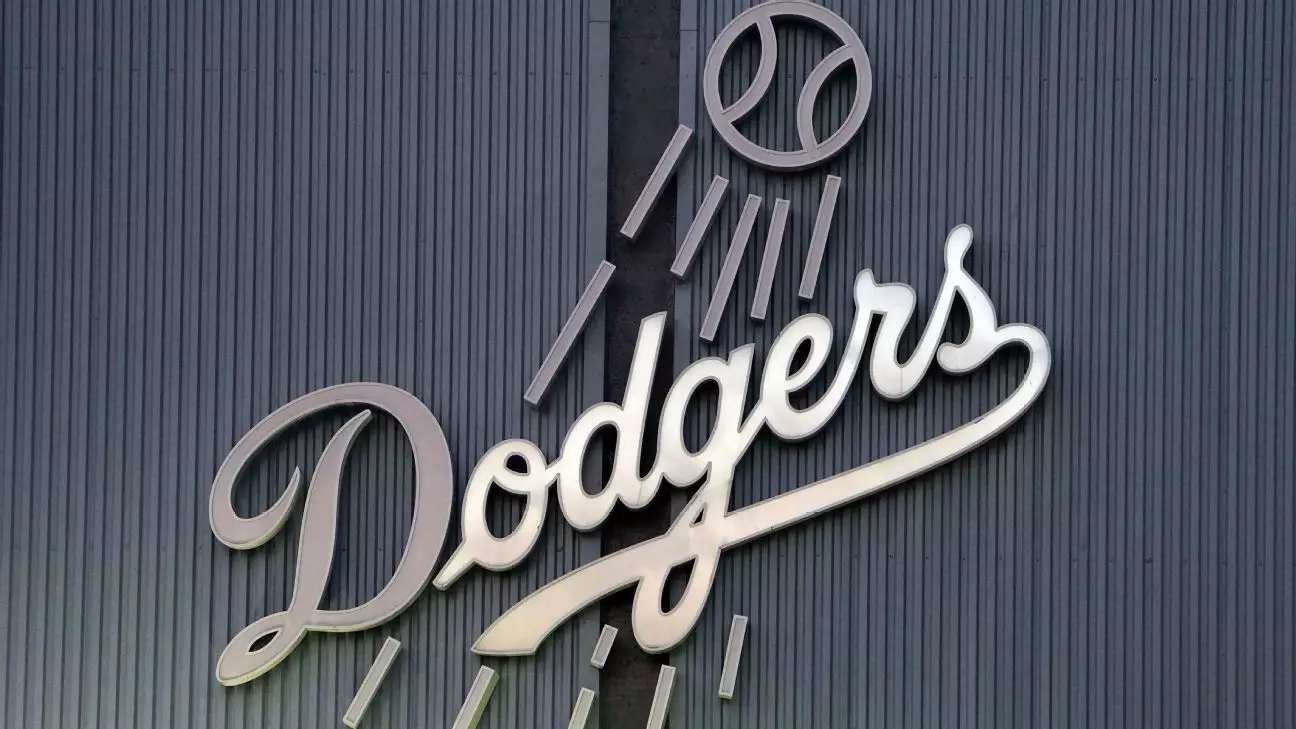In the realm of Major League Baseball (MLB), the financial strategies employed by teams can greatly influence their on-field performance and future competitiveness. A significant trend that has emerged in recent years is the practice of deferring player salaries, a tactic utilized prominently by the Los Angeles Dodgers. With an astonishing $1.051 billion owed in deferred payments to eight players extending far into the future, the Dodgers’ approach raises critical questions about the sustainability and fairness of such financial maneuvers in the sport.
The latest insights reveal that the Dodgers have made substantial contract commitments to prominent players, such as Tanner Scott and Teoscar Hernández. Scott’s recent four-year contract worth $72 million and Hernández’s three-year deal valued at $66 million underscore the aggressive financial strategies that have become commonplace among wealthy franchises. Notably, these deals include significant amounts of deferred compensation. For instance, Scott’s contract incorporates $21 million in deferred payments, while Hernández’s agreement defers $23.5 million to various future years.
This practice of deferring payments allows teams like the Dodgers to manage their payroll flexibility in the short term. With escalating player salaries and competitive bidding wars, deferred contracts could provide a competitive edge by allowing the franchise to invest in high-caliber players while spreading out the financial burden over an extended timeline. However, while this strategy might benefit the franchise’s immediate needs, it introduces long-term financial liabilities that may have implications for future management.
MLB Commissioner Rob Manfred has noted that the Dodgers’ financial strategies have garnered mixed reactions from fans and stakeholders in different markets. While the Dodgers’ ability to build a strong team attracts commendation, it equally raises concerns among teams with fewer financial resources. This dichotomy of competitiveness could lead to an imbalance in league parity, especially when wealthier teams can afford to outbid others and manage their budgets through mechanisms like deferred contracts.
The proposal to cap deferred salaries, introduced during collective bargaining negotiations, reflects a growing anxiety about the potential for a financial arms race in MLB. The players’ association, however, has resisted such changes, suggesting a complex interplay between player interests and the financial dynamics governing the sport. The ongoing dialogue highlighted by these actions illustrates the struggles inherent in establishing equitable guidelines for all franchises.
Digging deeper into the Dodgers’ obligations, the numbers reveal a staggering financial commitment that peaks at $100.95 million for the years 2038 and 2039. This figure is part of a broader trend in which MLB teams are now accountable for significant deferred payments stretching into decades ahead, potentially hampering their future financial maneuverability. Not only do these figures indicate the team’s current obligations, but they also raise questions about how such future liabilities will be managed.
In essence, the deferred payment practice necessitates careful financial planning. Dodgers President of Baseball Operations, Andrew Friedman, articulated this, emphasizing that the organization is not blind to these future commitments. He reassured stakeholders that meticulous accounting would allow the team to navigate future financial responsibilities without dramatic surprises.
As the Los Angeles Dodgers continue to leverage deferred contracts as a method for assembling a competitive roster, the repercussions of these financial decisions invite further scrutiny. While they may enable the team to pursue star players today, the long-term consequences for league parity and financial health remain to be seen.
With the players’ association and franchise owners navigating this evolving landscape, the discussions surrounding the deferred payment system are likely to shape the future of MLB contracts. The Dodgers serve as a prime case study in this debate, illustrating both the innovative strategies teams employ in modern baseball and the complexities that arise from such practices. Ultimately, how MLB addresses these financial tactics will play a vital role in ensuring not just the prosperity of teams like the Dodgers but the overall integrity and competitiveness of the league.

